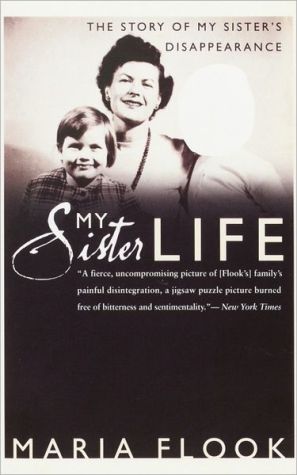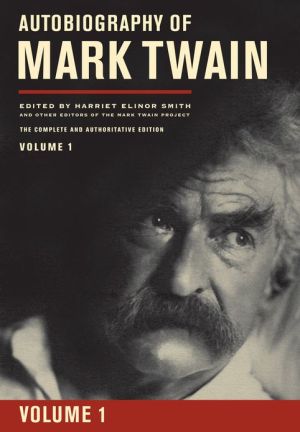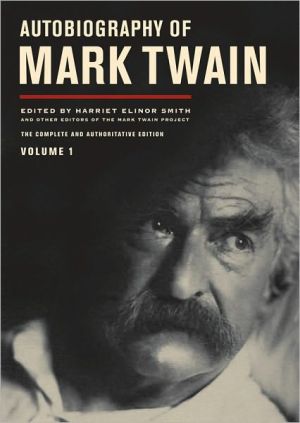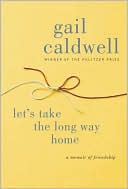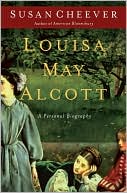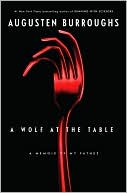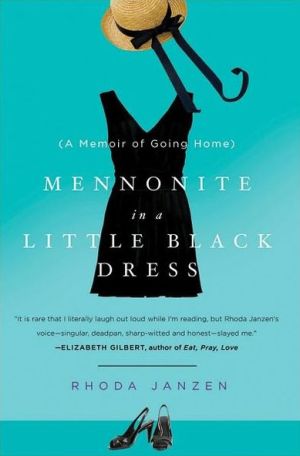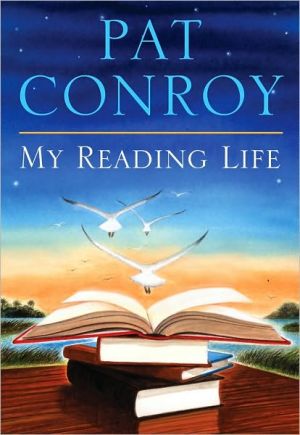My Sister Life: The Story of My Sister's Disappearance
When Maria Flook's fourteen-year-old sister Karen disappeared from their suburban home, the author was changed forever. My Sister Life maps the story of two castaways from American suburbia who, while apart from each other, live mysteriously parallel lives.\ With unrelenting realism and beguiling wit, Flook gives us an intimate account of her sister's life as a child prostitute, and of their coming of age in the 1960s--that surreal and wrenching moment of baby-boomer disenfranchisement, when...
Search in google:
When Maria Flook's fourteen-year-old sister Karen disappeared from their suburban home, the author was changed forever. My Sister Life maps the story of two castaways from American suburbia who, while apart from each other, live mysteriously parallel lives.With unrelenting realism and beguiling wit, Flook gives us an intimate account of her sister's life as a child prostitute, and of their coming of age in the 1960s—that surreal and wrenching moment of baby-boomer disenfranchisement, when the sexual revolution collided with the domestic fallout from the Vietnam War. From the ocean liners and Paris vacations of their refined upbringing to the gritty peepshows and adult theaters where they find jobs, the girls flee from a beautiful and tormented matriarch with secrets of her own.Her missing sister becomes Flook's secret heroine—the sole example to follow in her journey into womanhood. The sisters live in trailer parks. They are faced with sexual assault, car thefts, and petty crimes with unpredictable men. Escaping from an abusive Vietnam vet, Karen takes her toddler to join her sister, who is herself raising a baby on her own; it is the first time they are under the same roof since their childhood. Their unorthodox reunion allows the sisters to forge a life-saving bond.My Sister Life moves beyond biography or memoir to give us an astonishing vision of an American family—an authentic testimony to the defiant, undaunted faith between two sisters who connect after years apart. Courtney Weaver [The memoir] traces the trajectory of Karen's disappearance and the fallout of her actions on Maria. —The New York Times Book Review
Excerpt from Chapter 1\ WILMINGTON, DEL.\ My sister Karen disappeared when she was fourteen years old. The Wilmington Journal ran a photograph of Karen with the word runaway? beneath her face. The next day they ran the same picture. The caption asked, dead or alive?\ I was twelve years old. Karen told me, "I'm going to the corner, want anything? You want your Teaberry gum? Do you want a Hearn's cake?"\ I sat at the kitchen table, writing five sheets of detention homework. My sister was dressed up, wearing smoky nylons and low heels that shifted her posture forward. Her lipstick was frosted salmon-pink. Her matte powder erased her features.\ "I don't have money for sweets," I told her, fishing.\ Karen said, "I've only got a dollar. That's not enough for both of us."\ "Forget it," I said.\ "I'm going to the store," Karen said again. She pinched the doorknob for a long time, I thought, before turning it. I saw the kitchen clock above her head; its second hand had become bent. As it circled the numbers, the needle scratched a silver gouge in the clock's white face. Then my sister went out.\ When Karen hadn't returned after forty-eight hours, the Penny Hill police recognized that it wasn't a typical pout session or simple teen whimsy. Federal investigators were directed to our street. My father, Ray, laid out some of Karen's report cards with the teachers' comments. The FBI agent picked up one yellow booklet and read the teacher's remarks, "Karen is an agreeable student but too retiring. She should be encouraged to participate in class discussions."\ "This says your daughter is the shy type?"\ "She's quiet," Ray said.\ "These shy kids don't usually take off. But sometimes a wallflower turns into a wild seed," the agent said.\ Ray didn't like what the agent was suggesting, and he asked me to leave the room. I wasn't reluctant to leave because I could hear everything the agent said by standing inside the dining room chimney. Inside the mortared shaft, their conversation was amplified. I heard my mother sniffling. She ripped a tissue from its hollow box, and another. Veronica was giving a performance. The agent asked about our two older stepsiblings, each of them married and living on their own. Had Karen ever confided in one of them and run off to one of their homes?\ "It wouldn't be an option," Veronica said.\ Veronica was painting an icy picture of our family's splintered relations; she was implying that when people jump ship, it's every man for himself.\ The FBI agent asked, "Does Karen have a nickname she goes by?"\ "'Peaches,'" Ray said.\ "Oh, please," Veronica said. "Only Ray called her that."\ "That's right, I call her 'Peaches,'" Ray told the agent.\ The FBI man asked, "Was your daughter a virgin?"\ Veronica asked Ray, "What's your guess?" Her voice had an edge.\ "These days, I don't know," my father said, and the FBI agent chimed in with his similar beliefs. "These days," he echoed Ray. The agent was careful to indict the age and not the girl herself. He wanted a list of Karen's boyfriends.\ "Karen didn't have any boyfriends," Veronica said flatly.\ "None? Are we sure?" Ray said.\ "If she had had any boyfriends, do you think she'd have been so gloomy all the time?"\ "Love is strange," the FBI man said.\ There was a tight silence.\ "In fact, if your daughter acted gloomy, that's a good sign she was in over her head," the agent told my parents.\ I was asked to return to the room to relate the details of Karen's departure. "What did Karen tell you?" the agent asked.\ I told the agent what my sister had said, "'Do you want a Hearn's cake?'"\ "What's that?" he said.\ I described the tiny sponge cakes that were sold at a nearby grocery store. The cakes were the size of scented guest soaps and iced with a satin glaze, a buffed pearl patina in hues of shell pink and Wedgwood blue. These tea cakes triggered my greediest impulses. Each compact confection was not meant to be shared, but should be centered on the tongue in one languorous and prolonged absorption of its delicate extracts--vanilla and rose water. Hearn's cakes had an almost sinister power over the senses and sometimes seemed to--especially right then--affect my moral decisions and issues of conscience. Perhaps, if I had asked Karen to bring me one little cake, she might have returned home. She might never have disappeared.\ The agent was impressed by my description of the sweets. He smiled at me. He asked, "What did Karen take with her when she left the house?"\ I told the government official that Karen did not take a single thing. I looked down at my white sneakers, which were smeared with soot from the hearth.\ "We have all the suitcases," Ray told the man.\ The agent said, "She could have hidden a grip in the bushes."\ "She didn't take anything," I said.\ "We have all the suitcases," Ray said another time, as if he had lost sight of exactly what was missing.\ The agent wanted to look around outside. We walked him full circle around our huge house, a fieldstone ranch. It was one hundred feet long, with blazing picture windows, massive squares of glass you could drive a tank through. These windows framed my youth; interior and exterior worlds merged or collided along these ten-foot transparent skins. Neighborhood families exhibited mirrored balls on pedestals, sport trophies, heirloom lamps, even a huge orchestral harp. Across the street our neighbors watched the FBI agent from their picture windows. I recognized Mr. Ossi peering at us, dressed only in his bathrobe and holding a baked apple in a dish.\ "Where did you last see your sister?" the agent asked me.\ "Right here on these kitchen steps."\ I sat down on the fieldstone risers and squashed tiny red spiders with my thumb. The agent looked inside our sunken garbage cans, four sheet metal canisters recessed below the flagstone sidewalk. Karen and I had stood in these tin wells, daring one another to squat inside and close the lids. But their stench was too strong and the compartments too eerie, like drawers in a morgue. Once, maggots had infested an odd sliver of garbage until it twitched and curled like a living finger.\ The agent stepped on the pedals until each heavy lid pried open. "She could have hid a suitcase in one of these cans," he said.\ Ray was losing his patience. He insisted that he could account for every odd tote bag, duffel and valise. Ray told the agent that Karen had started a job after school at the Holiday Lanes. They might know something. The agent took down the address of the bowling alley. He looked grim, but he assured my father that some girls ran away with just the clothes on their backs.\ Karen and I shared a room. Once, I had drawn an imaginary line down the middle of our bedroom, and if Karen put anything of her own on my side, I claimed it. When Karen was missing, all of her possessions were arranged in their proper places; there was no chance of them moving over the boundary and becoming my rightful property. I collected china horses and arranged them in formal rows across my dresser according to each one's temperament and conformation. These prancing mounts no longer allured me, and from my bed I studied the treasures on Karen's bureau glass. In the Nite Lite's dull arc, I saw her ceramic Siamese cat, slope-shouldered, with almond eyes and an emerald collar, a novelty shampoo bottle Karen had saved. I saw my sister's comb and brush, her blond hair coiled around the bristles. I saw her golden paperweight, a fossilized chunk of amber sap in which tiny bubbles of air were trapped.\ The hours with my sister were too short. Our entire brief union could fit into the tiny oval of Karen's hand mirror: One school night, I ask Karen to brush my hair. I hold the hand mirror extended and watch my reflection as Karen pulls the bristles over the crest of my scalp, scouring my accentuated widow's peak. She angles the untame strands until my mane is plowed and parted. If I turn the mirror slightly, I can see Karen's face, a pink barrette between her teeth. She wrinkles her nose when our eyes meet. She fastens the clasp around a tight hunk of hair until the roots at my temples are stinging.\ This hand mirror often comes back to haunt me. It is like a silver garden pond in memory, a bright oval of light splashed upon the ceiling of the psyche.\ From the Hardcover edition.
\ Courtney Weaver[The memoir] traces the trajectory of Karen's disappearance and the fallout of her actions on Maria. —The New York Times Book Review\ \ \ \ \ People MagazineRefreshingly human...\ \ \ Library JournalThe latest work of novelist/short story writer Flook (You Have the Wrong Man) is a coming-of-age memoir of her family, in particular her troubled older sister, Karen, who at age 14 disappeared for two years into the world of child prostitution. Flook, who secretly admired her runaway sister, was left to deal with the aftermath, including an emotionally distant mother and the hospitalization of her father. She continued her own growth, experimenting with sex and drugs and suffering a car crash the night her sister finally called home. The narrative shifts from sister to sister, describing their experiences and feelings for one another; matter-of-fact descriptions grounded in detail do not lessen the impact of the events recounted. -- Alison Hopkins, Queens Borough Public Librayr, Jamaica. New York\ \ \ \ \ Library JournalThe latest work of novelist/short story writer Flook (You Have the Wrong Man) is a coming-of-age memoir of her family, in particular her troubled older sister, Karen, who at age 14 disappeared for two years into the world of child prostitution. Flook, who secretly admired her runaway sister, was left to deal with the aftermath, including an emotionally distant mother and the hospitalization of her father. She continued her own growth, experimenting with sex and drugs and suffering a car crash the night her sister finally called home. The narrative shifts from sister to sister, describing their experiences and feelings for one another; matter-of-fact descriptions grounded in detail do not lessen the impact of the events recounted. -- Alison Hopkins, Queens Borough Public Librayr, Jamaica. New York\ \ \ \ \ Laura GreenWhen Maria Flook was 12 years old, her 14-year-old sister, Karen, walked out of their family's fieldstone ranch house in Wilmington, Del. When she returned after two years of turning tricks near a Virginia Navy base, Maria was in jail following a joy-riding accident and their mother, Veronica, had arranged for Karen to be checked into a psychiatric hospital the next day. Karen never lived at home again. Her fall from an opulent upbringing -- the girls' father was an engineer, their mother a beauty with a taste for luxury and a disdain for maternity -- was dramatic and permanent. At the end of My Sister Life, in which Flook recounts the sisters' entwined and terrible comings-of-age, Karen is married to a truck driver and working "in a 24-hour emporium of dollar slots at the Hollywood Riverboat Casino in Aurora, Illinois."\ My Sister Life is less about the horror of being lost than about the terrible disappointment of being found. Running from a narcissistic mother and an amiable but ineffectual father, Karen finds a grotesque parody of parental care in the trailer-park home of Ruth -- who runs a whorehouse into which she introduces Karen -- and James, who alternately nurtures, rapes and abuses her. At home, Maria embarks on a milder, but parallel, career of sexual bravado, drug use and association with petty criminals, and does her own stint in Cheltenham's psychiatric hospital. Consigned by Veronica to a convent for homeless girls, she finally escapes via a brief marriage to a dissolute preppy who turns out to be obsessed with hard-core pornography.\ With its unblinking vignettes of maternal rejection, rape, prostitution and abuse, one of the memoir's most striking qualities is its apparent candor. Any memoir, however, omits as much as it includes, and Flook's largely bypasses both emotion and analysis. Flook employs the affectless style common to recent memoirs of personal trauma: "My lip is puffy from when James whacked me with my loafer. Ruth told James that if he locks me in the shack again, he'll have to find another hamper for his booty. 'You want to discipline your girlfriend, just don't use my Alum-a-room,' she tells him." The blame for these numbing events rests squarely, but vaguely, on Veronica, whose self-absorption seems beyond analysis and describable only through metaphor: "Our beautiful mother was the mysterious kernel, the blister, the contagion seed in our family's doomed whole."\ Veronica remains an opaque icon of rejection, and metaphors of disease and contagion shed only fitful light on the family's unraveling or its relationship to the larger context of the social upheaval of the '60s and '70s. The lack of more pointed analysis perhaps reflects the real ineffability and isolation of family dysfunction, as Flook's deadpan style presumably enacts the numb distancing induced by the traumas she describes. Yet if the purpose of personal writing is not to engage its readers' emotions and lead them to ponder cause and effect, then what can it be? My Sister Life, for all its candor, never quite answers that question. --Salon Jan. 15, 1998\ \ \
